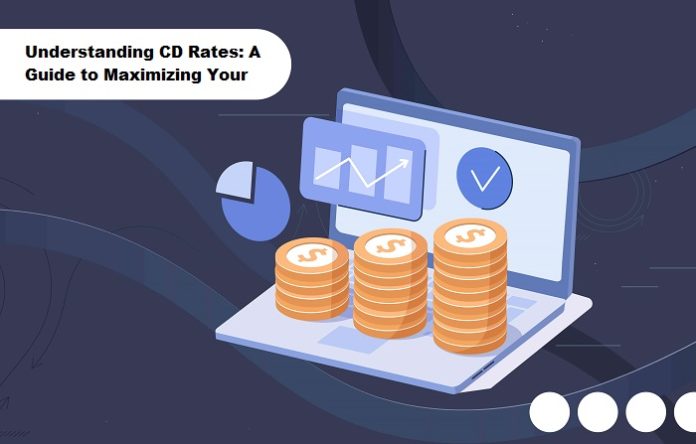When it comes to saving money, it pays to do your research. CD rates vary significantly across financial institutions and can confuse new or seasoned savers alike. That’s why we’ve put together this comprehensive guide on understanding CD rates so you can maximize your savings in the long run.
Here, we’ll cover what a CD is, how each component works, and valuable advice on finding the best possible rate for your investments. We’ll also discuss some potential risks associated with Certificates of Deposit that you should be aware of before diving saving with CDs. Read on for all the necessary details about optimizing returns from CDs.
What are CD Rates, and Why Should I Care about them?
As a responsible consumer and investor, one should pay attention to CD rates. CD stands for Certificate of Deposit, a type of investment vehicle that requires an individual to leave their funds in the account for a specific period in exchange for a higher interest rate than a traditional savings account. As inflation rates rise, finding ways to earn more than the inflation rate is vital to preserving your money’s purchasing power.
CD rates offer a way to do this while at the same time providing a low-risk option for those who are not interested in more volatile investments. By researching and comparing CD rates offered by various institutions, you can decide where to invest your money and earn more than you would through a traditional savings account.
Compare Current CD Rates from Different Banks Before Investing Your Money
It’sComparing CD rates from different banks before making any investments is crucial. It is especially true if you want the best return on your money. Different institutions offer different rates, so it pays to shop around. When researching potential CDs, look at their terms and conditions. Some may offer attractive interest rates but require a large minimum deposit or have high early withdrawal penalties. Therefore, reading the fine print carefully is essential before deciding which one is right for you.
Also read: How Much of Your Personal Savings Should You Be Investing?
You can also research current rates online by utilizing helpful comparison tools that make finding the best rate more straightforward than ever — remember to consider all of the terms and conditions associated with each certificate of deposit before committing to an investment.
Types of CDs and Their Benefits Explained in Detail
When investing in CDs, you have a few different options to choose from. Each type of CD offers unique benefits and drawbacks depending on your financial goals, so it’s essential to understand the differences before deciding. Traditional Certificates of Deposit are the most common kind, offering fixed interest rates and set maturity dates. These typically range from three months to five years, with longer terms providing higher returns.
Jumbo CDs offer higher interest rates than traditional CDs but with minimum deposits of thousands or more. They also tend to have longer maturity dates (usually up to 10 years). No-Penalty CDs are similar to regular certificates, but they allow you to withdraw funds at any time without paying the penalty. There are also variable-rate CDs, which can benefit investors who want to take advantage of changing interest rates.
Pros and Cons of Investing in a Certificate of Deposit
As with any financial decision, the pros and cons of investing in a CD should be weighed carefully. On the plus side, CDs offer more security than other investments, such as stocks or mutual funds, because they are FDIC-insured (up to $250,000 per account holder) and have fixed interest rates that don’t fluctuate like other investments.
On the downside, there may be restrictions on how to use your money — such as being unable to access it until the maturity date — and early withdrawal penalties if you need to withdraw funds before. Furthermore, returns on CDs typically lag behind those seen with stocks and other more volatile investments.
How to Make the Most Out of Your Investment
CDs can be an excellent way to save for retirement and other long-term goals without taking too much risk. To get the best return on your investment, it’s essential to compare rates from different banks and ensure you understand the terms and conditions associated with each CD before investing.
Additionally, it may be beneficial to ladder or stagger your investments by buying CDs with varying maturities so you can access funds at different times. It provides more flexibility in case you need the money earlier than expected or interest rates change significantly. By researching current CD rates and strategically managing your investments, you can maximize your returns while keeping your money safe.
Questions to Ask Before Deciding on a CD
Before investing in a certificate of deposit, you must ask yourself a few key questions. What are your financial goals? When do you need access to the funds? How much risk can you handle? Answering these questions will help you determine which type of CD is best for you and your needs.
Additionally, current research rates and read the terms and conditions associated with each to understand what you’re getting into before committing your money. Comparing different options from different institutions is also recommended — doing so could save you fees or provide better returns on investment.
Lastly, use comparison tools online when researching CDs for the best rates. By doing your research, you can ensure that you make the most of your investment in a CD.






